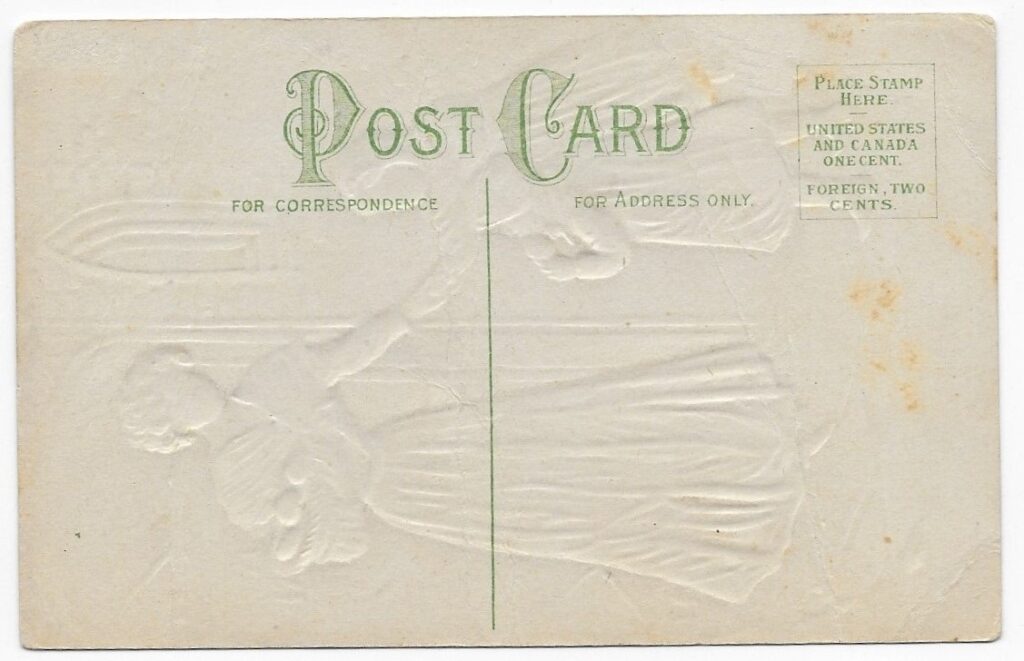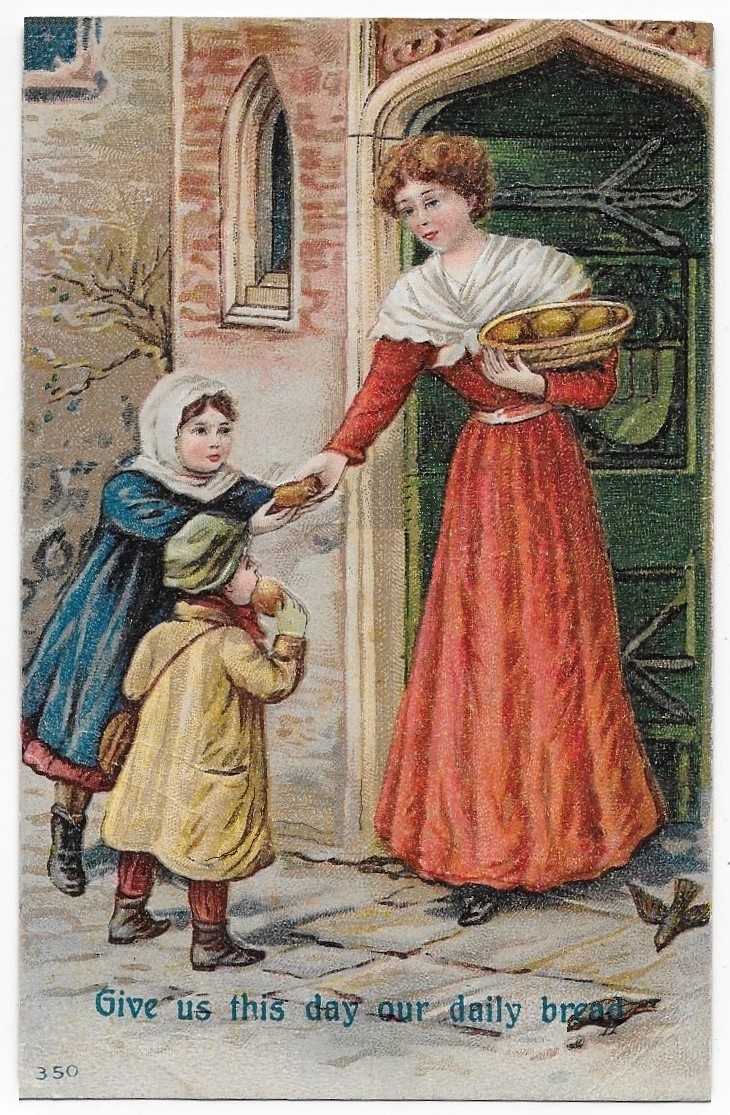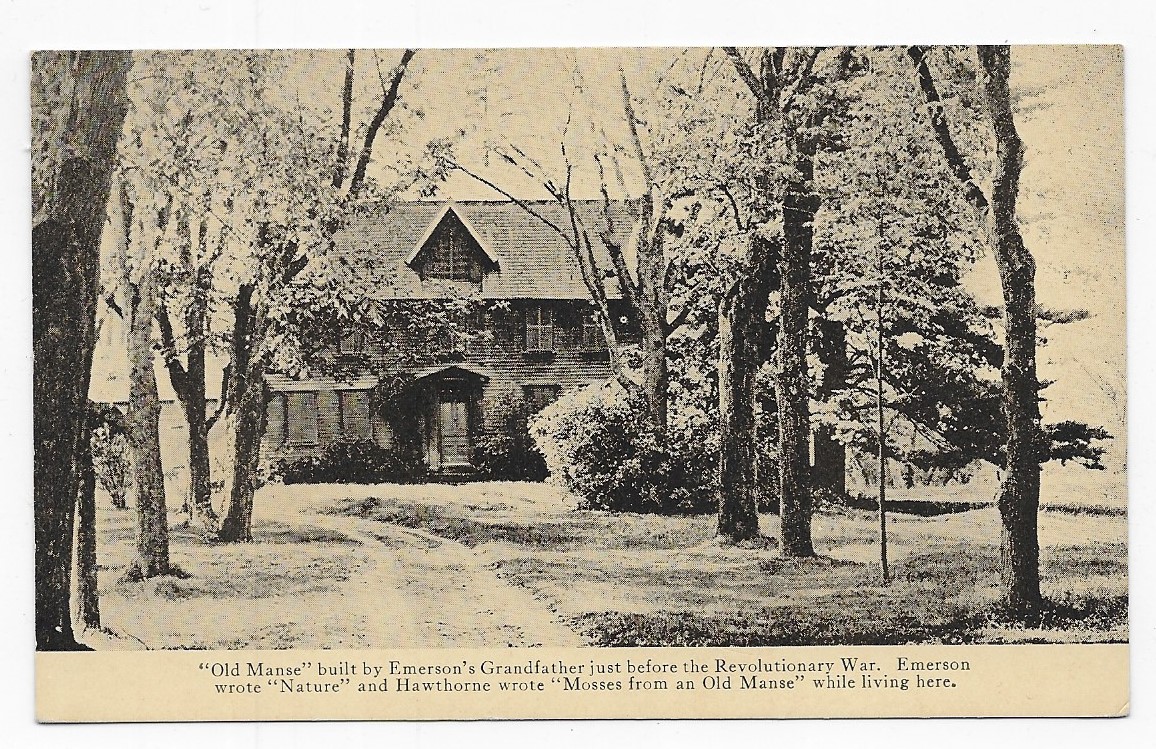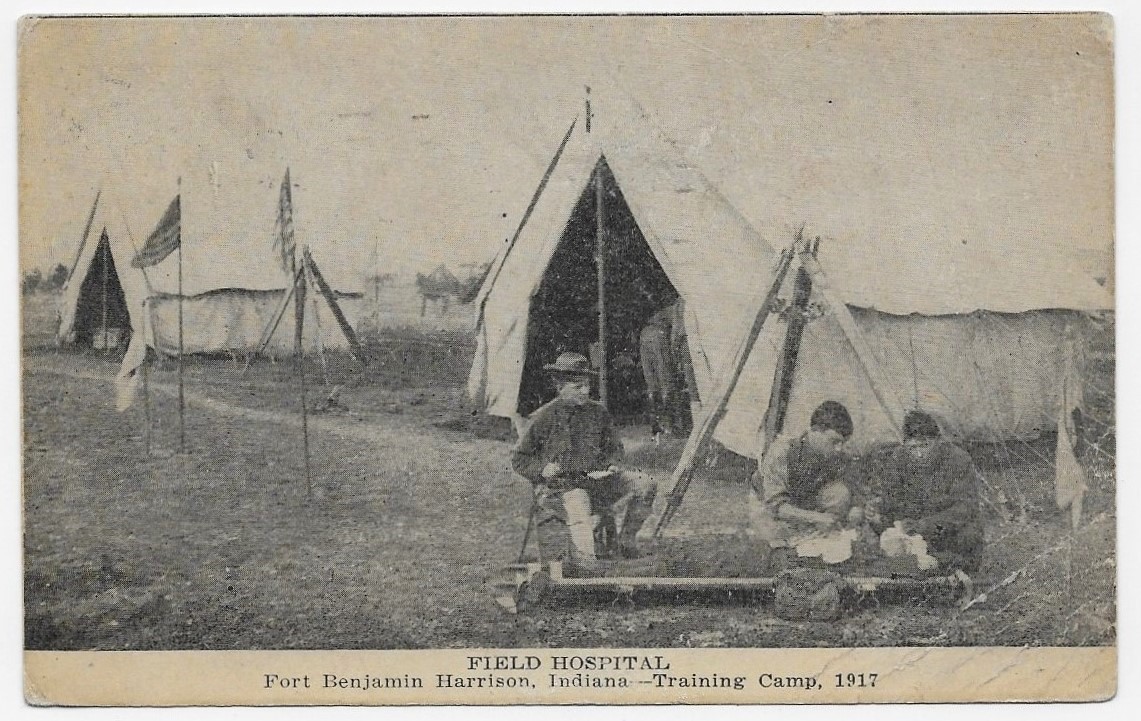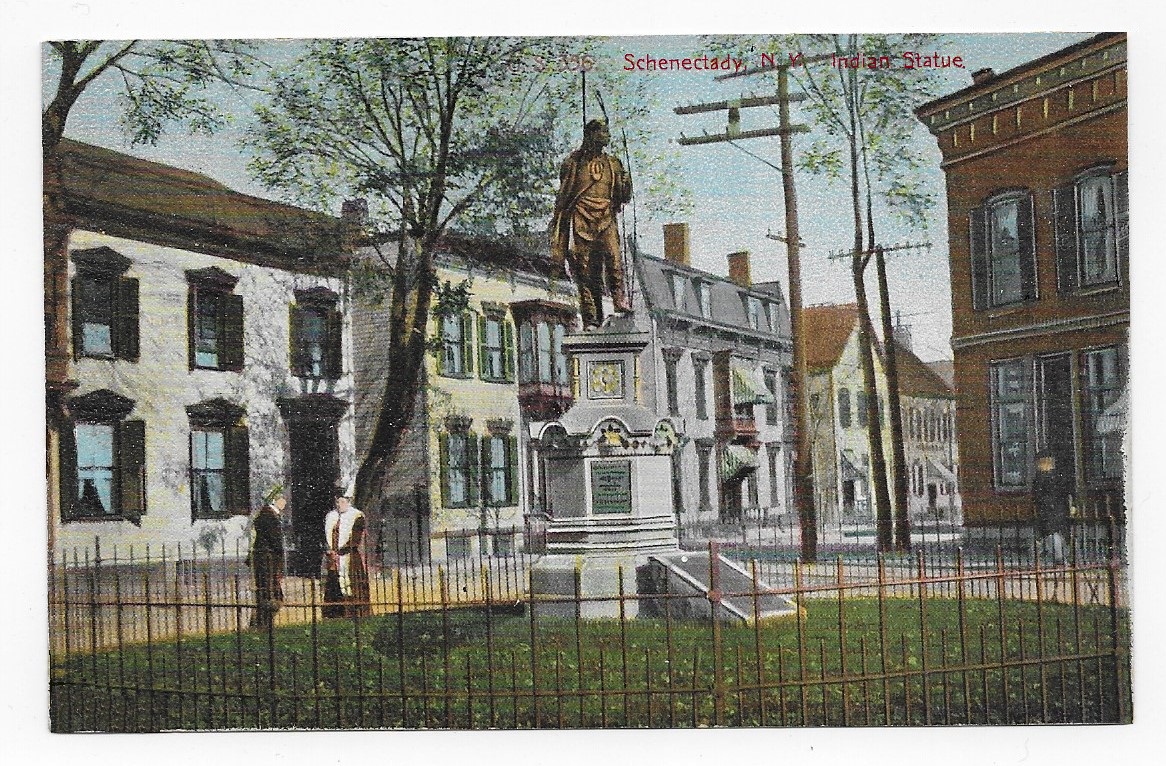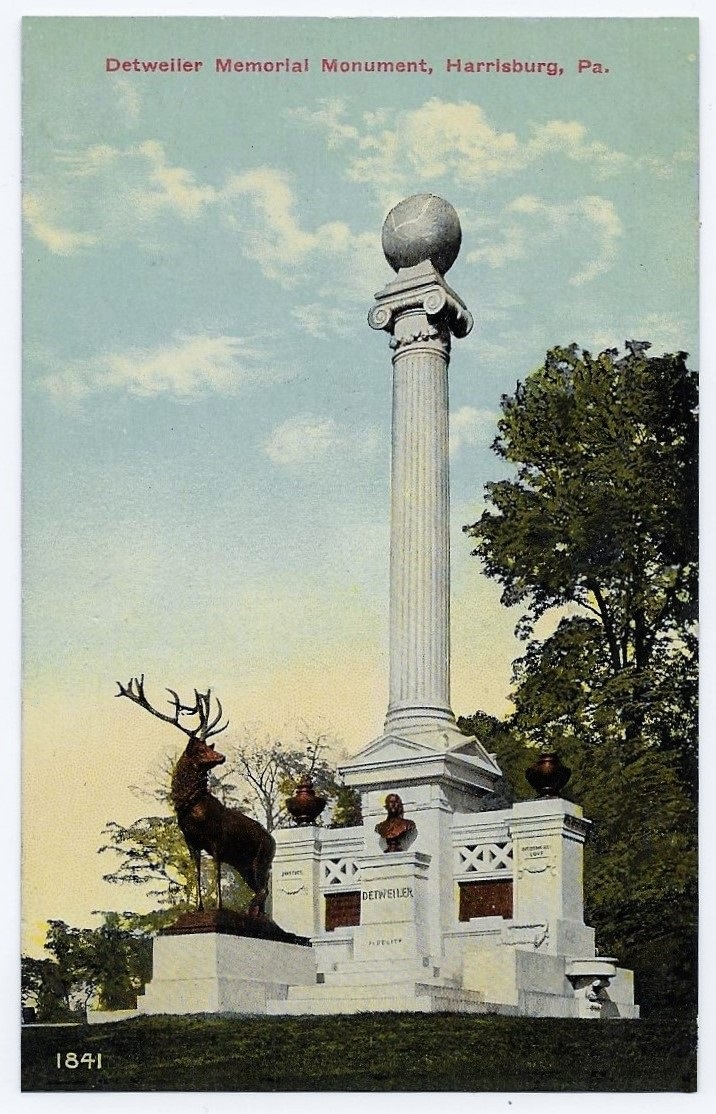This postcard, illustrating a phrase of the “Lord’s Prayer”, was not mailed – so there is no personal story attached to it.
The “Lord’s Prayer”, recorded in the Gospels of St. Matthew and St. Luke, is one element of worship that is common to all Christian traditions in the world.
https://en.wikipedia.org/wiki/Lord%27s_Prayer
In the early twentieth century, there were hundreds of postcard series like the one from which this card was taken.
I have shared a few phrases from several “Lord’s Prayer” series, but I have acquired only one complete set.
The artwork of the completed set in my collection is not as colorful and expressive as the postcards I have accumulated from “broken” sets.
+ + + + +
Here, we see two children receiving a gift of bread at the door of a woman who wears a long red dress and a white shawl.
The children appear healthy and are wearing suitable clothing – which is an atypical occurrence considering the abject poverty in which may poor children were raised through much of history.
A postcard story is an inadequate forum to discuss the history of “charity” in the Western world.
Always acknowledged as a good work and as a religious duty for Christians, charity (in the sense of gifts to alleviate human misery) was impelled by the spiritual grace of Charity – the God-like love of others.
In the Lord’s Prayer, the petition for daily bread is made to God – but the fulfillment is here made through the response of the Faithful.
+ + + + +
Many postcards illustrating Biblical themes were presented to students in Sunday Schools, but we have seen examples that were mailed as personal greetings as well.
In the early 20th century, the popular recognition of Scriptural allusions was much higher than it is in our time.
Today, Biblical knowledge and recognition is falling precipitously.
As individual engagement with organized religious groups declines, and as reading in general continues to decrease, the role of the Bible in a common culture seems to be diminishing.
Ironically, Biblical knowledge seems to have been more widespread even when more of the population was illiterate.
The following article explores the situation from a conservative Protestant vantage point.
